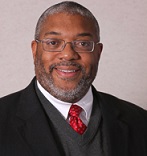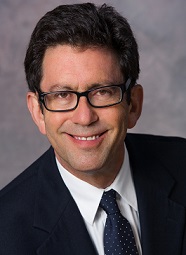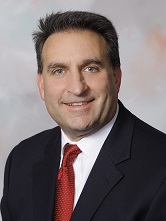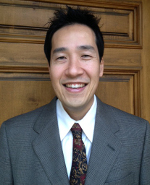Six gastroenterologists discuss what they are doing to create more efficient processes in their practices or endoscopy centers.
Ask Gastroenterologists is a weekly series of questions posed to gastroenterologists and colorectal surgeons around the country on business and clinical issues affecting the field of gastroenterology. We invite all GI physicians to submit responses. Next week's question: What do you think are a few of the most exciting advances in the GI field?
Please submit responses to Carrie Pallardy at cpallardy@beckershealthcare.com by Thursday, March 20, at 5 p.m. CST.
Question: How are you working to improve efficiency in your GI practice or endoscopy center?
 Brett Bernstein, MD, Director of East Side Endoscopy, Manhattan, N.Y.: As the director of Eastside Endoscopy, a Manhattan based single specialty endoscopy center, we are always looking for ways to enhance efficiency. During down time, nurses are utilized to make pre-calls to patients 48 to 72 hours in advance of procedures to review preparation instructions, pre-populate the EHR with historical data and ensure patients plan on keeping appointments. If patients are identified who are not planning on coming to their prescheduled appointment, our manager aggressively attempts to fill those slots by reaching out to other physicians by phone and electronically.
Brett Bernstein, MD, Director of East Side Endoscopy, Manhattan, N.Y.: As the director of Eastside Endoscopy, a Manhattan based single specialty endoscopy center, we are always looking for ways to enhance efficiency. During down time, nurses are utilized to make pre-calls to patients 48 to 72 hours in advance of procedures to review preparation instructions, pre-populate the EHR with historical data and ensure patients plan on keeping appointments. If patients are identified who are not planning on coming to their prescheduled appointment, our manager aggressively attempts to fill those slots by reaching out to other physicians by phone and electronically.
Darwin Conwell, MD, The Ohio State University Wexner Medical Center, Columbus: We are dedicated to the development of operationally efficient endoscopy units across the OSUWMC healthcare system. This involves several initiatives:
OSUWMC healthcare system. This involves several initiatives:
• Establishment of guidelines for national certification of endoscopy unit by ASGE
• Development of numerous "time stamps" from the entry into the endoscopy unit to discharge
• Electronic Quality programs implementation — GIQUIC
• Development of "on time start" policy for all endoscopy faculty supported by hospital leadership
• Space modeling with industrial engineering
• Team building to minimize cancellations of hospital procedures
• Nurse initiated programs to identify/quantify specific causes of late cancellations
• Education of inpatient nursing staff of endoscopy preparation methods
• Development of electronic "checklists" to standardize inpatient endoscopy preparation
• CREW Resource Management initiatives — Team "Huddle" in early AM
• Continued quality improvement with Dr. Moffit-Bruce team
• Continued assessment of anesthesia utilization in endoscopy unit
• Brainstorming to improve satisfaction and patient experience in waiting room
....plus others
But it also is vitally important to determine if the operational efficiency translates into efficacy! So we must measure the impact of these programs. If they are not efficacious then they need to be stopped.
 William Katkov, MD, Providence Saint John's Health Center, Santa Monica, Calif.: Increased efficiency in the office or endoscopy center requires vigilant management. The cost of supporting an office practice has become untenable for many practices, especially smaller ones with one to four physicians. Merging with other groups may realize economies that reduce overhead. Electronic medical records are meant to increase efficiency, but the initial cost in dollars and time has made the transition stressful. In the endoscopy center, a high-quality nurse manager with a wide range of skills is the single most important element in achieving an efficient operation. Every detail matters in attaining the goal of a smooth operation that meets regulatory and quality goals without unnecessarily increasing costs.
William Katkov, MD, Providence Saint John's Health Center, Santa Monica, Calif.: Increased efficiency in the office or endoscopy center requires vigilant management. The cost of supporting an office practice has become untenable for many practices, especially smaller ones with one to four physicians. Merging with other groups may realize economies that reduce overhead. Electronic medical records are meant to increase efficiency, but the initial cost in dollars and time has made the transition stressful. In the endoscopy center, a high-quality nurse manager with a wide range of skills is the single most important element in achieving an efficient operation. Every detail matters in attaining the goal of a smooth operation that meets regulatory and quality goals without unnecessarily increasing costs.
Steven Lichtenstein, DO, Director of the Division of Gastroenterology, Medical Director, Endoscopy/GI Lab at Mercy Fitzgerald Hospital, Darby, Pa.: I use ScopeGuide by Olympus for every colonoscopy now, because in my case it has decreased the time required for a colonoscopy. The efficiencies created by ScopeGuide include improved patient comfort and a more precise anatomical location for where your scope is at any point during the procedure
by Olympus for every colonoscopy now, because in my case it has decreased the time required for a colonoscopy. The efficiencies created by ScopeGuide include improved patient comfort and a more precise anatomical location for where your scope is at any point during the procedure
ScopeGuide shows an accurate 3-D reconstruction of the position and configuration of the endoscope position within the colon that is refreshed multiple times per second for real-time viewing— allowing for quick identification and mitigation of loops. I teach medical students, and usually in my procedure room I will have at least two or three students, and occasionally residents or fellows. Through ScopeGuide, you can actually see the bend and the loops and the anatomy of the colon, which can substantially decrease the learning curve of a fellow.
 Gilbert Simoni, MD, Los Robles Hospital, Thousand Oaks, Calif.: Try to eliminate unnecessary steps and processes, going electronic and minimize down-time.
Gilbert Simoni, MD, Los Robles Hospital, Thousand Oaks, Calif.: Try to eliminate unnecessary steps and processes, going electronic and minimize down-time.
Patrick Takahashi, MD, Chief Medical Information Officer, Chief of Gastroenterology Section, St. Vincent Medical Center, Los Angeles: Efficiency through my GI practice and endoscopy center have been improved through multiple avenues. The annual review processes with contracted payers are always of paramount importance from a financial standpoint. From a productivity standpoint, my goal is to integrate procedure reports sent from the surgery center directly into my office based EMR, which will save a substantial amount of time in terms of the review process and obviate headache in terms of lost reports.
center have been improved through multiple avenues. The annual review processes with contracted payers are always of paramount importance from a financial standpoint. From a productivity standpoint, my goal is to integrate procedure reports sent from the surgery center directly into my office based EMR, which will save a substantial amount of time in terms of the review process and obviate headache in terms of lost reports.
I believe that endoscopy companies such as Olympus/Pentax will find it advantageous to build interfaces with their reporting software and the most popular office EMR's. Similarly, I have been attempting to have pathology reports sent directly to my office based EMR as well. Missed endoscopy appointments and office appointments are less frequent because of the streamlining of the reminder process. I have my staff verify contact information with more regularity during visits to facilitate this and also have been requiring small deposits for endoscopic procedure appointments as a sign of good faith. With good communication and hard work, I have seen a significant decrease of no-shows and last minute rescheduling of patients.
More Articles on Gastroenterology:
Advanced GI Opens New Office in California
ASGE Opens New $20M Endoscopy Training Center in Illinois
6 Gastroenterologists on Best Opportunities for GI Practice Expansion
Ask Gastroenterologists is a weekly series of questions posed to gastroenterologists and colorectal surgeons around the country on business and clinical issues affecting the field of gastroenterology. We invite all GI physicians to submit responses. Next week's question: What do you think are a few of the most exciting advances in the GI field?
Please submit responses to Carrie Pallardy at cpallardy@beckershealthcare.com by Thursday, March 20, at 5 p.m. CST.
Question: How are you working to improve efficiency in your GI practice or endoscopy center?
 Brett Bernstein, MD, Director of East Side Endoscopy, Manhattan, N.Y.: As the director of Eastside Endoscopy, a Manhattan based single specialty endoscopy center, we are always looking for ways to enhance efficiency. During down time, nurses are utilized to make pre-calls to patients 48 to 72 hours in advance of procedures to review preparation instructions, pre-populate the EHR with historical data and ensure patients plan on keeping appointments. If patients are identified who are not planning on coming to their prescheduled appointment, our manager aggressively attempts to fill those slots by reaching out to other physicians by phone and electronically.
Brett Bernstein, MD, Director of East Side Endoscopy, Manhattan, N.Y.: As the director of Eastside Endoscopy, a Manhattan based single specialty endoscopy center, we are always looking for ways to enhance efficiency. During down time, nurses are utilized to make pre-calls to patients 48 to 72 hours in advance of procedures to review preparation instructions, pre-populate the EHR with historical data and ensure patients plan on keeping appointments. If patients are identified who are not planning on coming to their prescheduled appointment, our manager aggressively attempts to fill those slots by reaching out to other physicians by phone and electronically.Darwin Conwell, MD, The Ohio State University Wexner Medical Center, Columbus: We are dedicated to the development of operationally efficient endoscopy units across the
 OSUWMC healthcare system. This involves several initiatives:
OSUWMC healthcare system. This involves several initiatives:• Establishment of guidelines for national certification of endoscopy unit by ASGE
• Development of numerous "time stamps" from the entry into the endoscopy unit to discharge
• Electronic Quality programs implementation — GIQUIC
• Development of "on time start" policy for all endoscopy faculty supported by hospital leadership
• Space modeling with industrial engineering
• Team building to minimize cancellations of hospital procedures
• Nurse initiated programs to identify/quantify specific causes of late cancellations
• Education of inpatient nursing staff of endoscopy preparation methods
• Development of electronic "checklists" to standardize inpatient endoscopy preparation
• CREW Resource Management initiatives — Team "Huddle" in early AM
• Continued quality improvement with Dr. Moffit-Bruce team
• Continued assessment of anesthesia utilization in endoscopy unit
• Brainstorming to improve satisfaction and patient experience in waiting room
....plus others
But it also is vitally important to determine if the operational efficiency translates into efficacy! So we must measure the impact of these programs. If they are not efficacious then they need to be stopped.
 William Katkov, MD, Providence Saint John's Health Center, Santa Monica, Calif.: Increased efficiency in the office or endoscopy center requires vigilant management. The cost of supporting an office practice has become untenable for many practices, especially smaller ones with one to four physicians. Merging with other groups may realize economies that reduce overhead. Electronic medical records are meant to increase efficiency, but the initial cost in dollars and time has made the transition stressful. In the endoscopy center, a high-quality nurse manager with a wide range of skills is the single most important element in achieving an efficient operation. Every detail matters in attaining the goal of a smooth operation that meets regulatory and quality goals without unnecessarily increasing costs.
William Katkov, MD, Providence Saint John's Health Center, Santa Monica, Calif.: Increased efficiency in the office or endoscopy center requires vigilant management. The cost of supporting an office practice has become untenable for many practices, especially smaller ones with one to four physicians. Merging with other groups may realize economies that reduce overhead. Electronic medical records are meant to increase efficiency, but the initial cost in dollars and time has made the transition stressful. In the endoscopy center, a high-quality nurse manager with a wide range of skills is the single most important element in achieving an efficient operation. Every detail matters in attaining the goal of a smooth operation that meets regulatory and quality goals without unnecessarily increasing costs. Steven Lichtenstein, DO, Director of the Division of Gastroenterology, Medical Director, Endoscopy/GI Lab at Mercy Fitzgerald Hospital, Darby, Pa.: I use ScopeGuide
 by Olympus for every colonoscopy now, because in my case it has decreased the time required for a colonoscopy. The efficiencies created by ScopeGuide include improved patient comfort and a more precise anatomical location for where your scope is at any point during the procedure
by Olympus for every colonoscopy now, because in my case it has decreased the time required for a colonoscopy. The efficiencies created by ScopeGuide include improved patient comfort and a more precise anatomical location for where your scope is at any point during the procedureScopeGuide shows an accurate 3-D reconstruction of the position and configuration of the endoscope position within the colon that is refreshed multiple times per second for real-time viewing— allowing for quick identification and mitigation of loops. I teach medical students, and usually in my procedure room I will have at least two or three students, and occasionally residents or fellows. Through ScopeGuide, you can actually see the bend and the loops and the anatomy of the colon, which can substantially decrease the learning curve of a fellow.
 Gilbert Simoni, MD, Los Robles Hospital, Thousand Oaks, Calif.: Try to eliminate unnecessary steps and processes, going electronic and minimize down-time.
Gilbert Simoni, MD, Los Robles Hospital, Thousand Oaks, Calif.: Try to eliminate unnecessary steps and processes, going electronic and minimize down-time.Patrick Takahashi, MD, Chief Medical Information Officer, Chief of Gastroenterology Section, St. Vincent Medical Center, Los Angeles: Efficiency through my GI practice and endoscopy
 center have been improved through multiple avenues. The annual review processes with contracted payers are always of paramount importance from a financial standpoint. From a productivity standpoint, my goal is to integrate procedure reports sent from the surgery center directly into my office based EMR, which will save a substantial amount of time in terms of the review process and obviate headache in terms of lost reports.
center have been improved through multiple avenues. The annual review processes with contracted payers are always of paramount importance from a financial standpoint. From a productivity standpoint, my goal is to integrate procedure reports sent from the surgery center directly into my office based EMR, which will save a substantial amount of time in terms of the review process and obviate headache in terms of lost reports. I believe that endoscopy companies such as Olympus/Pentax will find it advantageous to build interfaces with their reporting software and the most popular office EMR's. Similarly, I have been attempting to have pathology reports sent directly to my office based EMR as well. Missed endoscopy appointments and office appointments are less frequent because of the streamlining of the reminder process. I have my staff verify contact information with more regularity during visits to facilitate this and also have been requiring small deposits for endoscopic procedure appointments as a sign of good faith. With good communication and hard work, I have seen a significant decrease of no-shows and last minute rescheduling of patients.
More Articles on Gastroenterology:
Advanced GI Opens New Office in California
ASGE Opens New $20M Endoscopy Training Center in Illinois
6 Gastroenterologists on Best Opportunities for GI Practice Expansion


